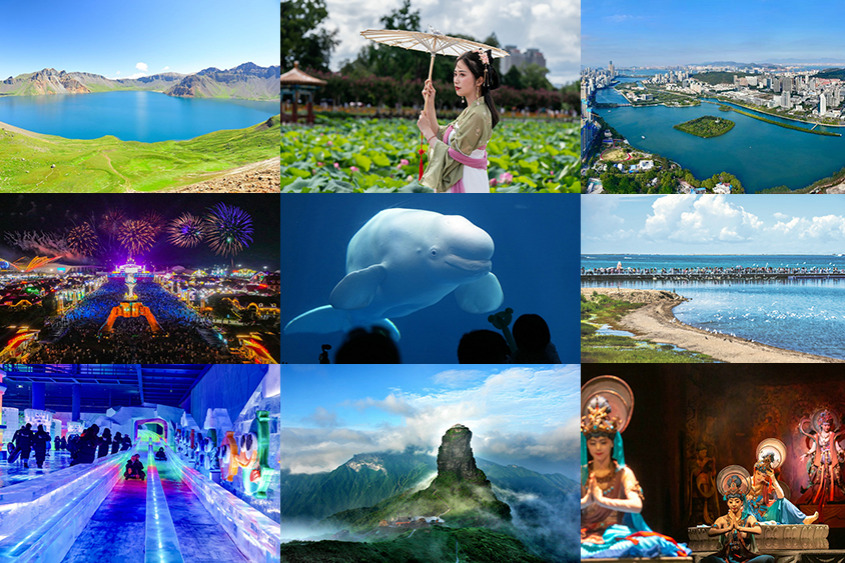Wetland tourism heats up in China's 'ice city'


While many Chinese cities are still battling the summer heat, citizens in Harbin, Northeast China's Heilongjiang province, are flocking to the river-bank beaches in the Hulan Estuary Wetland Park to enjoy refreshing water activities and outdoor barbecues.
"We've seen a significant increase in tourists recently, entertaining about 5,000 visitors every weekend," said Zhang Huan, operations manager at the park.
Zhang said that reservations for the park's barbecue sites must now be made a day in advance, due to the excessive number of tourists.
On one Chinese social media platform, wetland parks like "Sun Island Scenic Area" and "Hulan Estuary Wetland Park" have repeatedly appeared among the top search terms for tourist attractions, with many tourists posting photos and notes sharing their experiences.
Located in China's northernmost province, the city of Harbin was also a big hit on social media last winter due to its various ice-and-snow tourist attractions, gaining the reputation of "ice city."
This summer, the city has been vigorously developing summer attractions to further boost local tourism, making its vast wetland area a hub for leisure travel.
In addition to water activities, sports events in the wetlands have also become trending topics. Recently, a China-Russia invitational canoeing competition commenced on the Hulan River at the Hulan Estuary Wetland Park, attracting more than 3,000 Chinese spectators and over 100 Russian spectators.
Wang Hongxin, director of the culture and tourism bureau of Harbin, said the city is constructing an all-round river and wetland tourism area by tapping its unique natural and historical resources.
The area has incorporated summer cultural and tourism activities and night-economy projects, attracting an increasing number of investments, said Wang.
The boom of wetland tourism has been achieved thanks to Harbin's long-term efforts on wetland protection.
Harbin was among the first batch of cities in China to be certified as "international wetland cities" by the Ramsar Convention, an intergovernmental environmental treaty that provides for national action and international cooperation on wetland conservation. As such, Harbin is dedicated to advancing wetland protection and restoration.
Its recent accomplishments include the Alejin Island Wetland Park, which became a national-level wetland park in December 2020, with a total area of 419 hectares and a wetland rate of 71.1 percent.
"We have established internal management systems focusing on wetland protection, animal preservation and water-quality monitoring, standardizing the protection operations," said He Xiaohu, director of the operations department of Harbin Alejin Business Management Co., Ltd., responsible for the park's management.
The company demolished illegal buildings, including various shacks and livestock pens, and dredged the hydrological connection between the park and the Songhua River to form a relatively complete water system network to improve its environment, He said. In addition, a 191-million-yuan (about $26.8 million) investment has been made to build a water quality monitoring center, a 7.7-kilometer loop road, and a 1-million-square-meter green belt, He added.
According to the local government, Harbin has restored more than 3,000 hectares of wetlands, built 150 kilometers of wetland sightseeing avenues, and demolished 154 illegal buildings and structures to protect and develop its wetland resources. Wetland tourism is said to attract nearly one million tourists, creating a total direct and indirect value of around 10 billion yuan for the city each year.

































